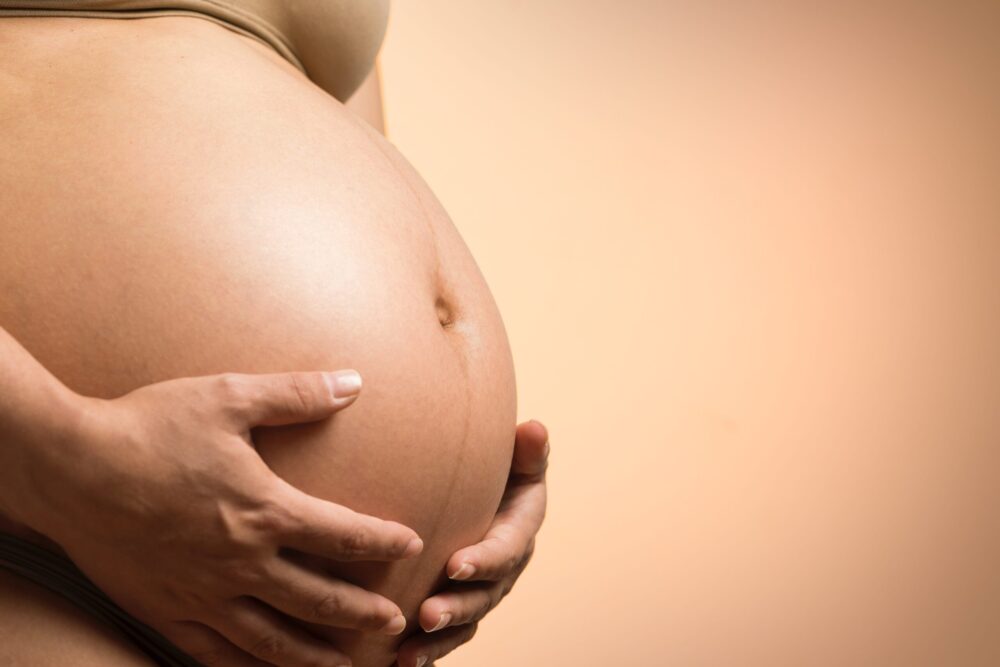Pregnancy is a time of significant change for both mother and baby.
The mother must give her baby all the essential nutrients to grow and develop.
This includes enough protein, vitamins, minerals, and other essential nutrients.
Therefore, during pregnancy, you must ensure you eat a healthy diet containing all of these essential nutrients.
Pregnancy is a time of joy, but it can also be stressful.
Pregnant women are advised to eat healthily and take care of themselves. The following nutrients will provide you with the essential nutrients you need to be healthy during pregnancy:
– Folate: Helps prevent neural tube defects in the fetus and promotes brain development.
– Iron: Helps maintain energy levels and prevents anemia.
– Protein is essential for fetal growth, tissue repair, and cell production.
– Omega 3 fats: They help develop the baby’s nervous system, brain, eyes, heart, and immune system.
A healthy diet during pregnancy is vital for both mother and baby. The mother needs to eat a variety of nutrients to ensure that she gets all the essential vitamins, minerals, and other nutrients.
A pregnant woman should not restrict her diet too much. Instead, it would be best if you ate a wide range of foods from different groups. This will provide you with all the essential nutrients you need during pregnancy.
What foods are rich in iron and suitable for a pregnancy diet?
Iron is an essential nutrient for pregnant women. It helps the mother make enough red blood cells and hemoglobin.
Iron-rich foods include plant foods, animal foods, and fortified cereals. Some of the best iron-rich foods are spinach, broccoli, black beans, lentils, and fortified cereals. The body needs iron to make hemoglobin, which carries oxygen from the lungs to all body parts.
The best sources of iron are animal products such as meat, poultry, and fish. Other good sources include whole grains, green leafy vegetables, and dried beans.
Iron is an essential mineral for pregnant women.
Some of the best iron-rich foods are:
-Beef
-Liver
-Oysters
-Mussels
-Pumpkin seeds
-dried apricots
How much is calcium necessary for a pregnancy diet?
Calcium is one of the essential minerals for pregnant women. The recommended daily intake of calcium for pregnant women is 1,300 mg. However, this amount can be challenging to obtain from food alone. Many pregnant women take a supplement to ensure they get enough calcium.
There are many different types of calcium supplements on the market, but which should you choose?
A good calcium supplement should contain a high percentage of elemental calcium. An excellent way to find out which supplement has the best rate of essential calcium is to read the label and look at the milligrams per serving.
Calcium is a mineral that is essential for our body to function correctly. For example, it helps develop bones and teeth and regulates the release of hormones.
The recommended daily intake of calcium for pregnant women is around 1,300 mg daily. However, it can vary depending on different factors such as age, weight, stage of pregnancy, etc.
Knowing the recommended daily calcium intake and how much calcium is needed. Calcium deficiency can lead to several health problems, including osteoporosis, high blood pressure, constipation, and mood swings.
The truth about salt in your diet
Salt is one of those things that has been demonized for no reason. The truth is that salt is perfect for you.
Pregnant women should be careful about how much salt they consume because it can lead to high blood pressure and other complications.
Salt is essential to the diet of a pregnant woman. But too much salt can harm both the pregnant woman and the fetus.
The recommended amount of salt for pregnant women is less than 1,500 mg of sodium per day. That’s about the same as a teaspoon of table salt.
You’ve probably been told to avoid salt as much as possible during pregnancy. Unfortunately, it’s a common misconception that salt causes high blood pressure and contributes to weight gain and other pregnancy-related complications.
The human body needs sodium to function properly. This mineral is essential for maintaining electrolyte balance, regulating blood pressure, and even supporting nerve function. The average woman needs about 1,500 milligrams of salt per day during pregnancy.
Conclusion on the best diet for pregnancy
This section concludes that no specific diet is best for pregnancy, but some general guidelines exist.
The best diet for pregnancy includes all the necessary nutrients and vitamins. There are some essential nutrients to consider during this time: protein, calcium, folate, iron, and vitamin D.
The best diet for pregnancy is one rich in vitamins and minerals, high in healthy fats, and low in sugar.
The best pregnancy diet is about the foods you eat and the lifestyle you lead. Eating a good diet will help you have a healthy baby.
Many different diets claim to be the best diet for pregnancy. However, there is no specific diet that is best. Every woman’s body is diverse, and her needs will also differ. The best way to determine which diet is proper for you is to consult a doctor or nutritionist who can help you decide which foods work best for your needs.

